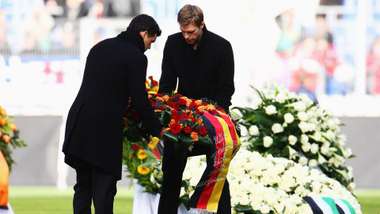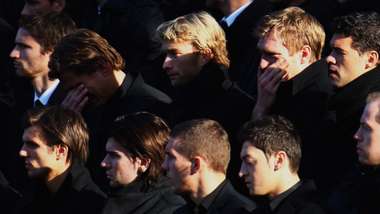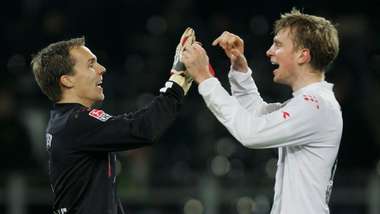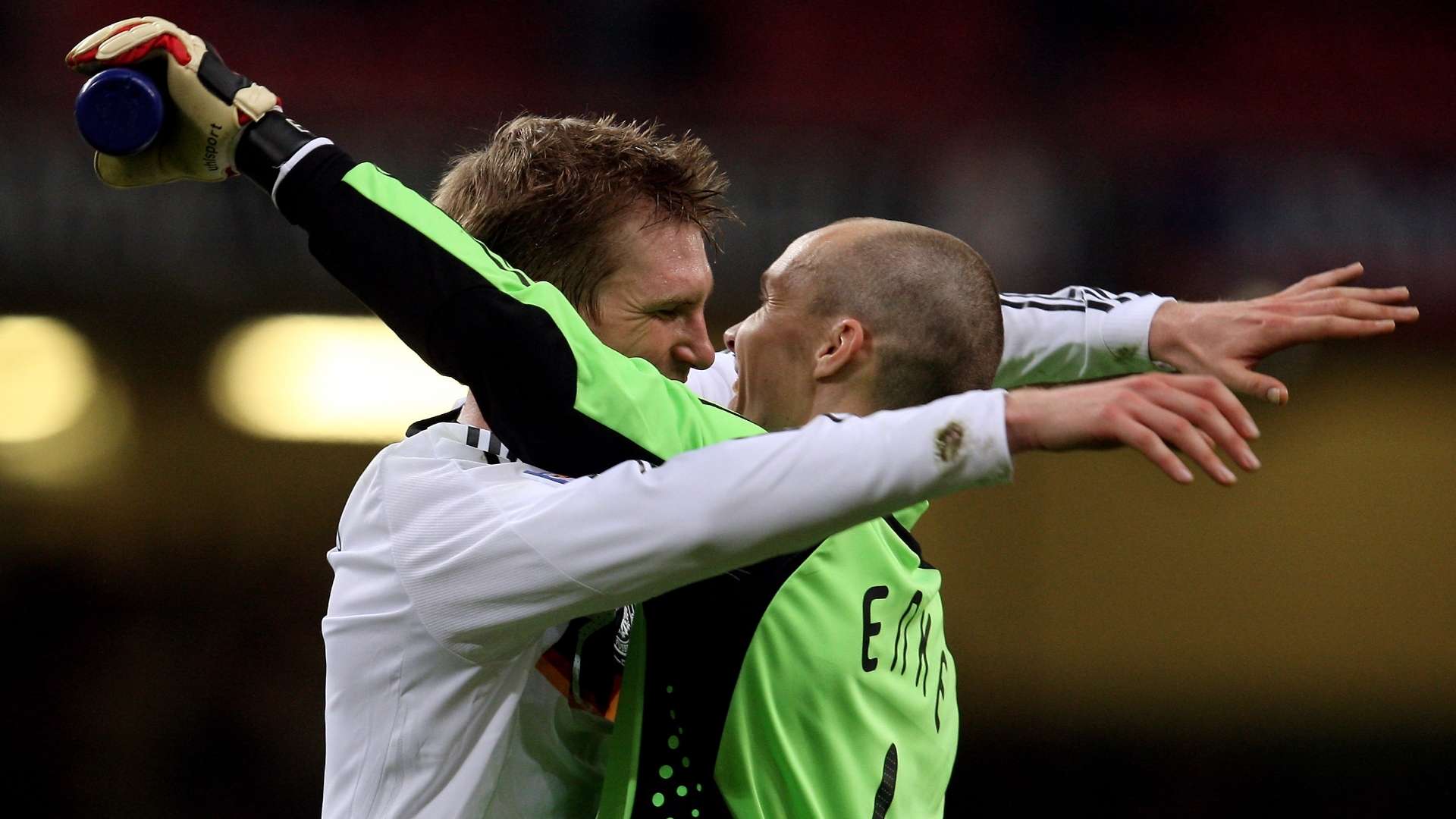It’s been more than 10 years since German international goalkeeper Robert Enke took his own life after a battle against depression.
But for Per Mertesacker, the tragedy of losing his close friend still feels as raw as it did when he first heard the news on November 10, 2009.
Mertesacker and Enke had been close friends since 2004, when the goalkeeper joined the defender at Hannover 96 having signed from Benfica.
At the time, Arsenal’s academy manager was just 19 and Enke took it upon himself to guide the young centre-back through the early stages of his career.
"He encouraged me, he pointed out my qualities - which one sometimes no longer sees himself as an insecure 19-year-old,” Mertesacker wrote in an emotional blog post about Enke in 2017.
Next Match
“He let me feel that he felt safe with me in the defence. I think a more beautiful experience can hardly be done at work, no matter what job you do: he gave me his trust."
From those days together at Hannover, Mertesacker and Enke struck up an unbreakable friendship that remained right up to the moment the goalkeeper chose to stand in front of a train at a level crossing near his home.
When Enke’s death was announced, the news was met with widespread shock not just from across the wider football world, but from those closest to the 32-year-old.
On the surface, everything had seemed normal. Enke had played a game against Hamburg just two days earlier, he was in the running to start for Germany at the 2010 World Cup and was even being linked with a move to Bayern Munich.
But he had also been hiding an increasingly dark battle against depression, one that had been fuelled by the death of his daughter Lara three years earlier, who had been born with a heart defect.
And for Mertesacker, the pain of losing his great friend was matched by knowing that he hadn’t spotted any of the signs that Enke had been struggling.

It’s something that still sits with him now more than 10 years on, and it’s something that now dictates what Mertesacker is trying to build at Arsenal’s academy.
“It was devastating, it felt really heavy at that time,” Mertesacker said, when discussing Enke’s death. “I was sad, he was a very close friend of mine.
“It’s a very sensitive topic but I felt devastated. You question a lot. You question your life, you question your ability to connect with people.
“But I hope what I can learn from this is that you need to be very careful with the people living alongside you and you need to care.
“That’s something we are really keen on in the academy, to be the most caring academy in the world and that’s the challenge we put on ourselves.”
Mertesacker added: “It’s one horrible example where people can be athletes and play to a high, high level on a weekly basis, but could suffer something else that we don’t know about.
“And that’s a big lesson for everyone, [it shows] that everyone is really in danger of mental illness.
“We need to be really cautious about this topic. Now we are here and sometimes it feels like the media will maybe do a campaign for a week to put an emphasis on it, but we then operate as usual the week after.
“It’s really about the people who live in the here and now to make it work.”
Mertesacker’s words on Enke’s tragic death come amid the Heads Up campaign, a project being spearheaded by The Duke of Cambridge.

As a result, the Premier League has dedicated its matchweek 26 fixtures - including Arsenal’s game with Newcastle on Sunday - to raising awareness and encouraging conversation around mental health.
It’s a campaign Mertesacker backs - and as the man who now oversees the hundreds of young players who are progressing through Arsenal’s academy, he says educating those boys about the issues surrounding mental health is one of the most important things on his agenda.
“When I was playing there were sometimes people you could speak to like psychologists, but it was not as open an environment as it is right now,” said the 35-year-old.
“The chance we have now is to influence the next generation, so we’re really keen on bringing it all out and being conscious about mental health.
“When I struggled before games I was not really comfortable with the situation. I was always thinking that speaking about yourself or seeking help shows a weakness.
“We are trying to get rid of that notion by bringing out more stories about myself, about others, bringing more attention [to the fact] that top athletes struggle, bringing it more to life in a normal way and encouraging youngsters to speak out because we are a club that cares."
Mertesacker took over as Arsenal’s academy manager in 2018 and has started to build a vision of producing ‘strong, young Gunners’ who are equipped to deal with anything that comes their way - whether it be on the football pitch or off.

Youngsters at Hale End are taught how to deal with injury, with the prospect of rejection and about various other scenarios which could have a direct impact on their mental health and wellbeing.
Ensuring that they are given the tools to cope with the demands of life is just as important to Mertesacker as seeing a player progress through to the first-team.
“When we look at the mission of the academy, [which is] to create the most challenging and most caring youth academy in the world, then you can see from the statement that we want to prepare for life,” said the World Cup winner.
“We want to be the most challenging for the kids to push them on to the next level, but as well in that challenge, we have to be caring in the sense of how can we support every single individual to live up to the expectations and support them in every aspect of their personal and individual development.
“There is a huge objective in our mission to build these strong individuals to cope with any scenario in life. That’s why we think our vision of strong, young Gunners is perfect in that sense.
“We try to put everything in place here to make sure there is an open forum to mental health.”
Mertesacker added: “On the one hand we want to be the best football academy, where we build youngsters up to play in the team, to play football, to play the game they love.
“But we teach them to do it with respect, discipline and humility, and in these words already are a lot of things that indicate we want to do it the right way.
“We speak about physical health, but the mental part of it plays a huge part in that. How do we interact with each other, how do we keep that open forum alive, how do we develop our players, our coaches our staff and raise their awareness about how we talk to each other?
“We have a range here of Under-9s to Under-23s, how can we learn from each other, how can an Under-9 learn from an Under-23 in terms of his journey, on the struggle and the adversity that will kick in?
“So we do a lot of stuff that makes them more aware and hopefully more happy to live a more fulfilling life.”


